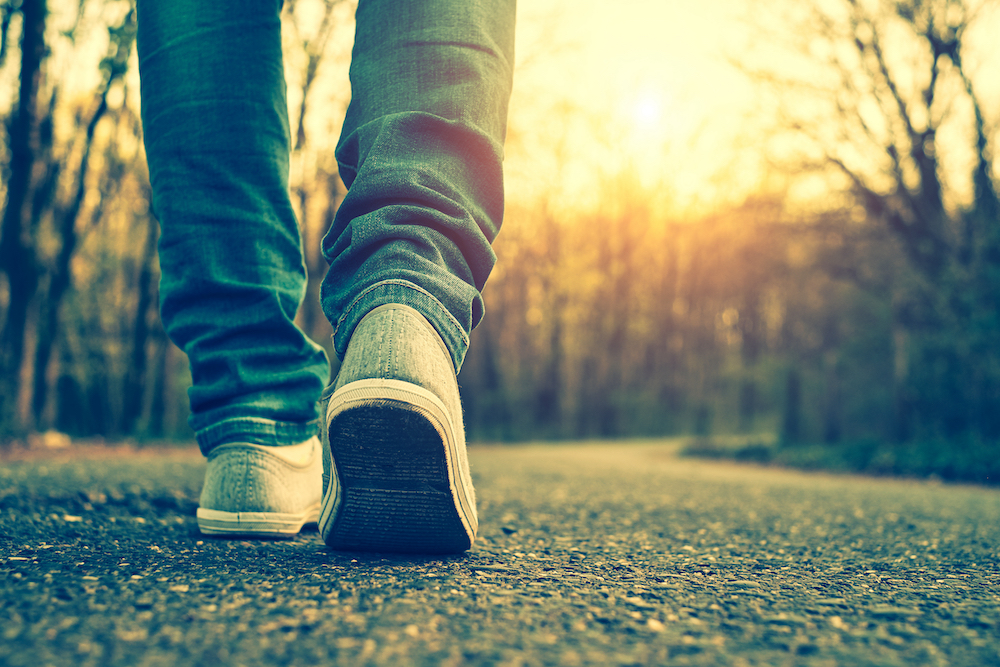
Have you been feeling sluggish lately, run down, tired, a bit off your game? Experienced a dip in your mood or wellbeing?
If you have, you’re not alone, it’s common to have ups and downs a bit like the weather, sometimes we can experience all the four seasons in one day. Everything, from sunshine to painful wintery showers.
I don’t know about you, but I always feel brighter when the weather’s warm, and the days are longer. I’m more likely to sit outside, go for a walk, meet friends and soak in wonderful vitamin D that is necessary for many vital functions and has been linked to improved mood, stronger bones, lower risk of cancer, heart disease, and depression.
On the flip side of the pandemic, there were some unexpected health benefits, of the first 2020 lockdown, being encouraged to take daily fresh air and exercise resulted in over three quarters of Brits (76%) taking up at least one new type of exercise.
Even though I’ve promised myself for years, that I’d eventually get back round to joining a gym I knew I probably never would, I just couldn’t be bothered with it. Yet when the pandemic hit, I was suddenly desperate to get out of the house for some physical exercise.
I started going for daily walks and it quickly became a routine that I didn’t want to break, which was true for a lot of people. Having a routine and some structure to our days provided a sense of being in control in an otherwise uncontrollable situation.
Yet, I admit that once I was ‘allowed’ to go out freely again, after the worst of the pandemic had passed, the shine had worn off a bit. Other areas of my life and work took over. Going for a daily walk that had been so precious to me, suddenly didn’t feel quite so important. I don’t have a dog or anyone who relied on me to leave the house daily, so I let things slide.
I easily slipped back into old habits…driving everywhere, rarely walking anywhere, sitting at my desk for hours on end, eating lunch at my desk and not going outside for regular fresh air and exercise.
I decided that I needed someone to keep me accountable, I knew that if I arranged to meet a friend each morning that I wouldn’t want to let her down. So now we meet Monday–Friday for a 30-minute walk, neither of us use our phones, we use the time to talk, listen, notice the change in the season, stop and chat to other people we’ve met while walking over the past few months.
Physical exercise elevates our mood by boosting endorphins and reducing the hormones cortisol and adrenaline that are produced when we feel stressed, anxious, or worried. Being in nature, or even viewing scenes of nature online, reduces anger, fear, and stress and increases pleasant feelings. Just think how relaxed a David Attenborough documentary make you feel!
Exposure to nature not only makes you feel better emotionally, it contributes to your physical wellbeing, reducing blood pressure, heart rate, muscle tension, and the production of stress hormones
The impact of nature on general wellbeing is staggering. In one study from Mind, they found 95% of those interviewed said their mood improved after spending time outside, changing from depressed, stressed, and anxious to calmer and more balanced.
I wonder how many of the people (81%) who said they would try to continue with their new exercise regime once life returned to a ‘new normal’, have stuck with it?
Have you? Or have you lost your exercise and fresh air mojo a bit like I did?
If you have here are 5 top tips for getting your groove back!
- Try going somewhere different for a walk or a day out. Pack some sandwiches and make a day of it if you can. When you’re there, try not to be distracted by technology. Use your time to mindfully enjoy the sights, sounds, and smells of the environment around you
- Perhaps you could enrol in some type of Community Ecotherapy, which basically involves getting out in nature and participating in some form of structured activity. You can work alongside other people or do it on your own. Community initiatives might include, gardening, hiking, walking groups, litter picking, tidying community areas and places of natural beauty. It will give you a sense of purpose and you’ll meet lots of new people in the process
- Start a routine now, as the days start to become gradually shorter and the nights become darker it will be harder to put a regime in place.
- Do something that you enjoy. Going outside into nature should feel like a pleasure, not a punishment. Don’t push yourself too hard, even sitting in your garden or local park and noticing the changes in season is good for mental health and wellbeing
- If you can’t get out in nature, bring it inside. House plants, lettuce, cress, anything that you can grow on a windowsill will connect you to the outdoors and lift your spirits.
Shannon Humphrey is a Youth and Adult First Aid for Mental Health Instructor. Find out more about her and the work she does at www.pathwaysforpositivity.com


